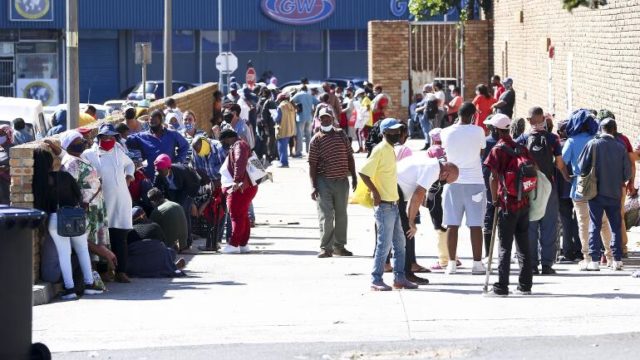The government has been slammed for appearing to spend more on failing state-owned enterprises than enabling its social welfare system and creating jobs.
THE GOVERNMENT has been slammed for appearing to spend more on failing state-owned enterprises (SOEs) than enabling its social welfare system and creating jobs which would enable fewer people to rely on grants.
The criticism comes in the wake of Statistics SA’s publishing of its 2020 General Household Survey (GHS), which shows a marked increase in the proportion of households with social grants as their main source of income since the onset of the pandemic.
Stats SA chief director Solly Molayi said social grants remain a vital safety net, particularly in the poorest provinces.
“The roll-out of the special Covid-19 SRD grant in 2020 has played a central role in protecting individuals and households against the loss of income during this period.
“Grants were the second most important source of income (52.9%) for households after salaries (57.6%), and the main source of income for about one-fifth (28.8%) of households nationally.”
Stats SA found that Covid-19 has had a distinct impact on the nature of child care arrangements for children aged 0 to 4 years in 2020.
“The percentage of children who attended Grade R, pre-school, nursery school, crèche, and educare centres decreased from 36.8% in 2019 to 24.2% in 2020, while the percentage of children who remained at home with a parent, guardian, other adults or children increased from 57.8% to 67.2% during the same period,” the survey said.
Responding to the statistics, social development standing committee chairperson Gillion Bosman (DA) said: “I am very concerned at the terrible blow to ECDs and the fact that the national government has still not developed a comprehensive recovery plan for ECDs and the payment of staff.
“The increase in households depending on social grants is a direct result of the inability of the government to implement policies that grow the economy and to budget for the welfare of citizens.
“The government has focused on supporting failing SOEs and has not ensured that the social welfare system is streamlined and that we create jobs to enable fewer people to rely on grants.”
The ANC’s provincial spokesperson on social development, Gladys Bakubaku-Vos, said: “The GHS paints a clear picture of increased government intervention to poor households as the Covid-19 pandemic has caused havoc to households.
“We note with concern the negative impact on school attendance and particularly the ECD phase as the number of children attending Grade R decreased. The government must find ways to respond to this challenge.
“It is sad to note that the number of persons relying on social grants for survival has increased. The increase in the number of persons relying on the R350 grants is a stark reminder of the need for a universal Basic Income Grant in the country. We call on the national government to speed up the process to make this possible.
EFF provincial deputy chairperson Nosipho Makamba Botya said: “The fact that grants were the second important source of income is very concerning.
“It also speaks to the fact that many people lost their jobs during this time, while others were laid off, resulting in the loss of income for many households.”
She said that while social grants provided some relief to these households, it was never enough since in most cases the grants barely even helped to make ends meet for many households that previously depended on salaries which came with their jobs.
Absa economist Miyelani Maluleke said: “Given that the economy has continued to lose jobs into 2021, social grants have probably become an even more important source of income for households.
“These data support our view that it will be politically and socially difficult for the government to follow through on the MTBPS plan to terminate the SRD in March next year.”
In his MTBPS statement last month, Finance Minister Enoch Godongwana said he would rein in SOEs and hand out “tough love”.








